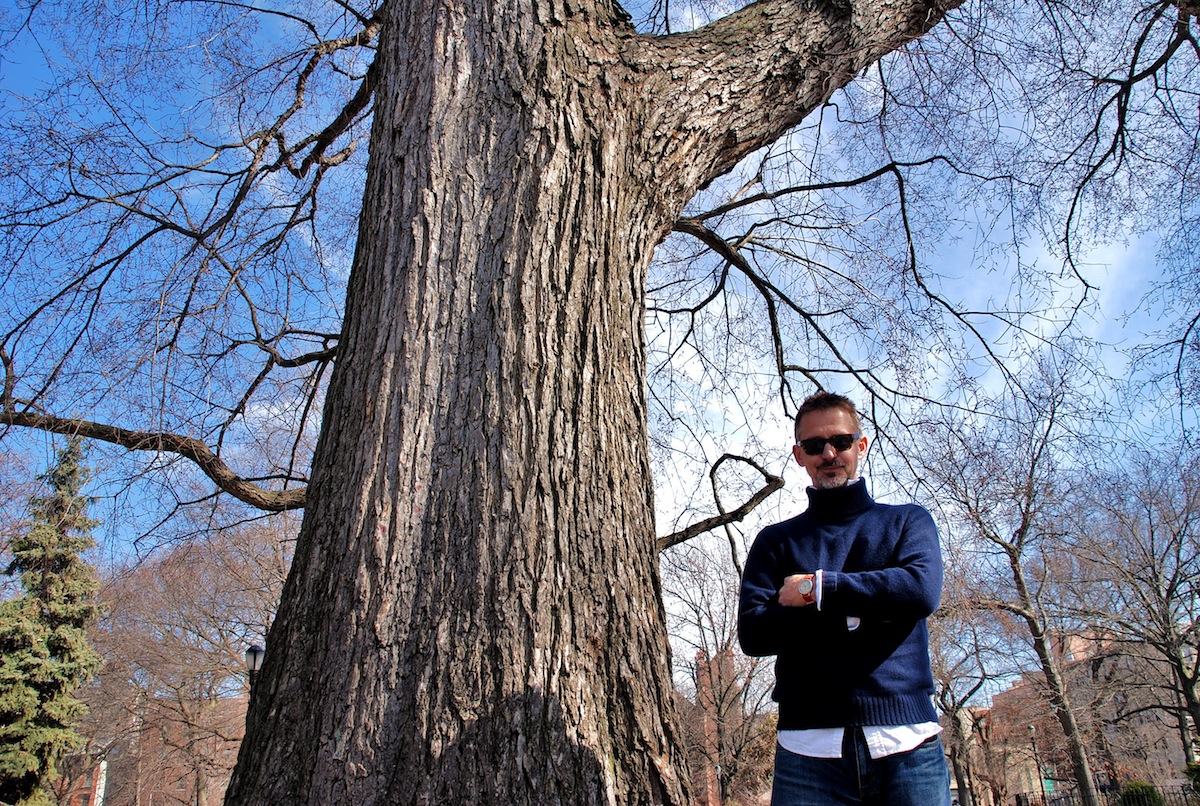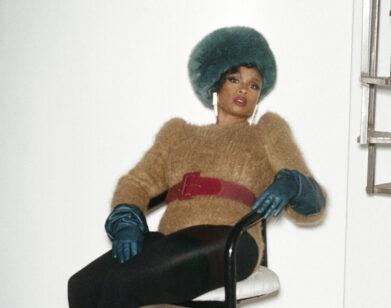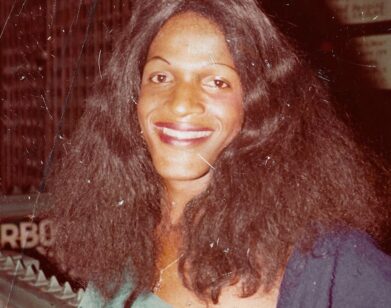Game Theory with Christopher Yates

ABOVE: CHRISTOPHER YATES. PHOTO BY AMANDA SEGUR
We all like playing games. But in Christopher Yates’ debut novel Black Chalk (Random House), they turn deadly. Black Chalk is an intense thriller full of secret societies and dark psychological puzzles. The novel opens with a hermetic narrator stuck and paranoid in his New York apartment recalling his university days in Oxford, England. What starts as almost idyllic recollections of making new friends in the famous halls of knowledge quickly turns sexy, then dark and brutal. We follow six college students as they join a clandestine club and begin concocting a game designed to push their limits.
Yates’ moody, smart noir is a literary mystery that explores the limits of friendship, romance, and truth. Black Chalk is written with dark poetry; and though driven by dangerous desires, its characters are human, fresh, and alive. Their relatibility makes their decisions and plights more perilous, but more sympathetic, too. We spoke with Yates about secrets of all kinds, fox hunting, doomed friendships, the loneliness of New York and twisted games.
ROYAL YOUNG: Let’s discuss personal secrets and secret societies. What’s the difference between a personal secret and one you share with a group?
CHRISTOPHER YATES: The book is about trying to find out personal secrets from each other by daring each other to do things. They’re trying to reveal secret nerves to hit upon. But then there’s a whole part of the book that concerns secret societies. Somewhere like Oxford has a number of them. I think there’s something about being young, just out of school and entering this big, bad adult world makes you want to do something like join a society.
YOUNG: Because it’s a cushion against the world? Keeping yourself safe and staying within a clan?
YATES: You’ve escaped from school, feeling like you’re an adult and you are looking for an identity. I know I almost joined about 20 different societies.
YOUNG: [laughs] What were the societies you almost joined?
YATES: I almost joined the hunt saboteur society.
YOUNG: What’s that?
YATES: Fox hunting was legal in Britain at the time. So posh people in red coats chase foxes on horseback and then rip the fox to pieces via their hounds. So that was a society of people who wanted to stop them by finding out where the hunts are going to be, and you turn up and throw the dogs off. I joined lots of sports societies. I joined the debating society at Oxford. It was really just throw everything at the wall and see what stuck. A lot of Prime Ministers and bigwigs were in the debating society, so it was bunch of 18-year-olds who dreamed of being Winston Churchill.
YOUNG: What do you think the kids in your book are dreaming of becoming? Their society is much darker than any of the ones you were part of. [laughs]
YATES: [laughs] Definitely. I think they are just trying to separate themselves from the rest of the world. They see themselves as different from the archetypal Oxford student. They come from poorer backgrounds and feel a kinship because they’re not privileged.
YOUNG: Is that something you experienced as well?
YATES: Definitely. Over half the people in my school at Oxford had been to private schools, often the top ones like Eton. I arrived knowing no one and nothing about Oxford. I just turned up quite scared, very excited, and very naïve. It was natural to gravitate towards people who had backgrounds more like me.
YOUNG: Do you think friendships like that are doomed to fall apart because they are young, fragile, and not fully shaped as a person? They are meant to protect you from the outside world, but then you go into the outside world and make real friendships.
YATES: Some of those friendships are doomed to fail. But some of my closest friends I made at college, but the other half of them I don’t talk to anymore.
YOUNG: Why did you choose to set the place in two very different locations, Oxford and New York’s Lower East Side?
YATES: The obvious answer is that I went to Oxford and I lived in the East Village. But more than that I wanted to highlight the contrast between Oxford and New York. I wanted my main character, who is a hermit, to be a long, long way away from Britain. He’s scared and hiding.
YOUNG: What are the differences between Oxford and Lower Manhattan?
YATES: Scale, to begin with. Oxford is a famous, tiny place, quite parochial, especially when there are no students there. Even when the students are there, there’s not much going on. New York is busy, crazy, exciting.
YOUNG: Interesting that your hermit would not choose to be a hermit in the small, quiet place. In fact, it can be easier to be isolated in a big city. In a small town you are watched, and if you’re not part of the community, people wonder. But in a big city you can really get lost.
YATES: Yes, the idea of losing yourself in a crowd. Typically you think of hermits living in caves, and I liked the idea of a hermit living in one of the busiest places on the planet. New York is place where you can lose yourself but also observe. When I first got to New York I was semi-hermetic myself. I didn’t know anyone when I arrived here, I would walk around a lot, listen to people and watch them, while enjoying my private thoughts and private discovery of the city.
YOUNG: What attracts you to games?
YATES: I am a game player. I love puzzles.
YOUNG: With people? [laughs]
YATES: [laughs] Not too much. The game in my book I came up with is a psychological game. It allowed me to examine human dynamics. I liked the metaphor that we are all to some degree playing games whether we mean to or not. Going into business is playing a game. Having a conversation with someone is playing a game. There are all these little games going on around us every day without us necessarily choosing to play them.
YOUNG: This interview has been a great game.
YATES: Yes, and having to think on my feet is maybe something I need more practice on.
BLACK CHALK IS OUT NOW.






